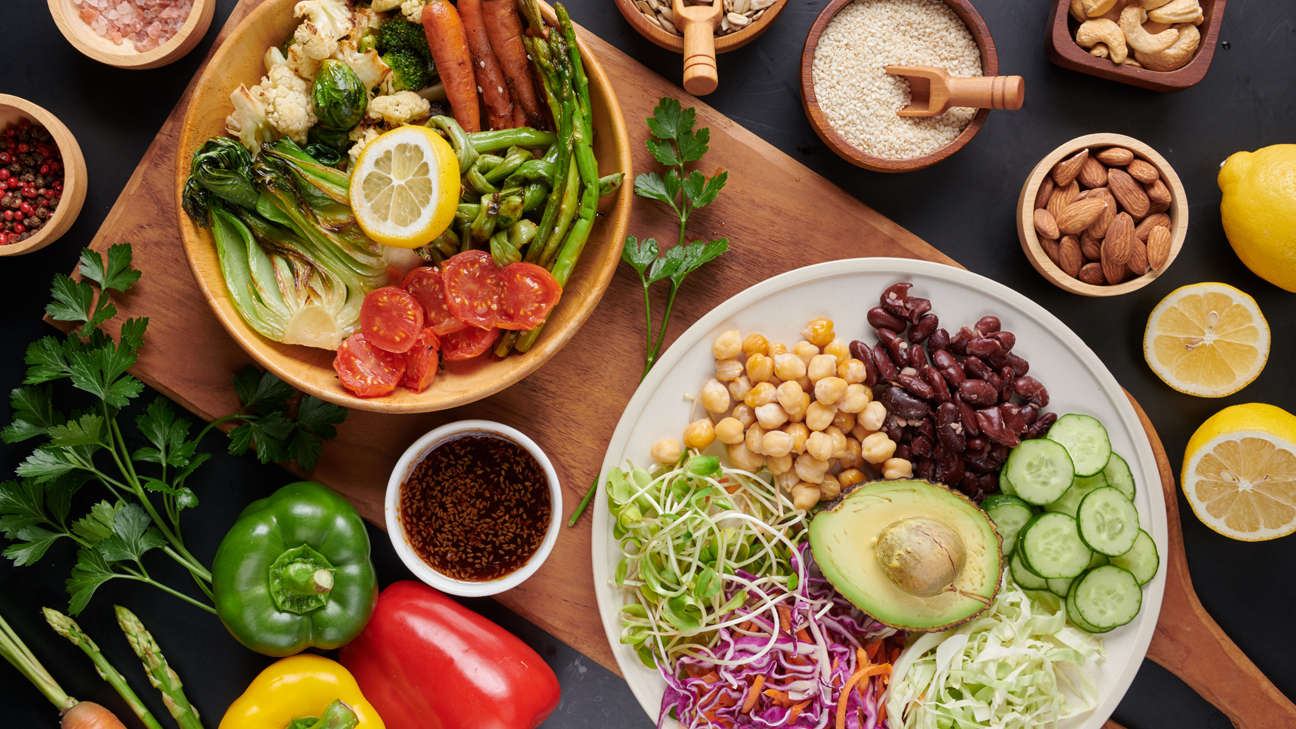Evidence Based
This article relies on solid scientific evidence, authored by experts, and thoroughly fact-checked by specialists.
Our team of licensed nutritionists and dietitians strives to maintain objectivity, impartiality, and honesty. We aim to present a fair representation of both sides of the argument.
Scientific references are included throughout this article. The numbers in parentheses (1, 2, 3) are clickable links to peer-reviewed scientific papers. These sources further support the information provided.

Maintaining a healthy pantry is a wise step towards preparedness and convenience. When selecting foods for your pantry, it’s essential to consider their shelf life to ensure they are healthy (1
PubMed Central
Highly respected database from the National Institutes of Health
Go to source ). In this article, we explore ten nutritious and versatile foods. Additionally, we identify ten items that are best avoided due to their potential for spoilage. By making informed choices, you can create a well-rounded and sustainable pantry that supports your dietary needs and withstands the test of time.
Healthier Choices
When it comes to making dietary choices, opting for healthier options can contribute to your overall well-being. Here are some suggestions for healthier choices to consider when planning your meals:
- Whole Foods: Incorporate a variety of whole foods into your diet, such as fruits, vegetables, whole grains, lean proteins, and healthy fats. These foods are rich in essential nutrients and provide a wide range of health benefits.
- Lean Proteins: Choose lean sources of protein, such as skinless poultry, fish, legumes, tofu, and low-fat dairy products. These options are lower in saturated fats and can help support muscle growth and repair.
- Colorful Fruits and Vegetables: Include a rainbow of fruits and vegetables in your meals to ensure a diverse intake of vitamins, minerals, and antioxidants. Aim to fill half of your plate with a variety of colorful produce.
- Healthy Fats: Incorporate sources of healthy fats into your diet, such as avocados, nuts, seeds, and olive oil. These fats provide essential fatty acids and can help promote heart health.
- Whole Grains: Choose whole grains like brown rice, quinoa, whole wheat bread, and oats over refined grains. Whole grains retain more fiber and nutrients, promoting better digestion and long-lasting energy.
- Balanced Portions: Practice portion control and be mindful of the amount of food you consume. Focus on listening to your body’s hunger and fullness cues to avoid overeating.
- Reduced Sodium: Keep an eye on your sodium intake by minimizing processed foods, canned soups, and packaged snacks. Instead, opt for herbs, spices, and natural flavorings to enhance the taste of your meals.
- Hydration: Make water your primary beverage and aim to drink an adequate amount throughout the day. Limit sugary drinks and alcohol, as they can contribute to excess calorie intake and dehydration.
- Mindful Eating: Slow down and practice mindful eating. Pay attention to the flavors, textures, and satisfaction level of your meals. This can help you develop a healthier relationship with food and prevent mindless overeating.
- Cooking Methods: Choose healthier cooking methods like grilling, baking, steaming, or sautéing instead of deep-frying. These methods require less added fats and help retain the nutrients in your food.
Remember, making healthier choices is about fostering a sustainable and balanced approach to eating. It’s not about strict diets or deprivation but rather nourishing your body with wholesome foods that support your overall health and well-being. Gradually incorporate these choices into your lifestyle, and consult with a healthcare professional or registered dietitian for personalized guidance based on your specific dietary needs and goals.
Less Healthy Choices
While it’s important to focus on making healthier choices, it’s also crucial to be aware of less healthy options that may have a negative impact on your well-being. Here are some choices to be mindful of and limit in your diet:
- Processed Foods: Processed foods often contain high amounts of added sugars, unhealthy fats, and sodium. These include pre-packaged snacks, sugary cereals, frozen meals, and fast food. They are typically low in essential nutrients and can contribute to weight gain and various health issues.
- Sugary Beverages: Sugary drinks like soda, fruit juices, flavored coffees, and energy drinks are loaded with added sugars and provide little to no nutritional value. Consuming them regularly can lead to weight gain, tooth decay, and an increased risk of chronic diseases such as diabetes and heart disease.
- High-Sodium Foods: Foods that are high in sodium, such as processed meats, canned soups, and salty snacks, can contribute to high blood pressure and cardiovascular problems. Excessive sodium intake should be avoided or limited to maintain optimal health.
- Fried and Deep-Fried Foods: Foods that are deep-fried or cooked in unhealthy oils tend to be high in unhealthy fats and calories. These include fried chicken, French fries, and battered snacks. Regular consumption of these foods can contribute to weight gain and increase the risk of heart disease.
- Sugary and Confectionery Treats: Foods high in added sugars, such as candies, cookies, pastries, and ice cream, provide little nutritional value and can lead to weight gain, tooth decay, and an increased risk of chronic diseases. These treats should be enjoyed in moderation as occasional indulgences.
- Artificial Trans Fats: Foods containing artificial trans fats, such as commercially baked goods, fried foods, and some margarines, should be avoided. Trans fats are associated with an increased risk of heart disease and should be replaced with healthier fat options.
- Highly Refined Grains: Refined grains, such as white bread, white rice, and refined cereals, have been processed to remove the bran and germ, resulting in a loss of fiber, vitamins, and minerals. These grains can cause blood sugar spikes and offer fewer health benefits compared to whole grains.
- Excessive Alcohol Consumption: Drinking alcohol in moderation can be a part of a healthy lifestyle. However, excessive alcohol consumption can lead to liver damage, increased risk of certain cancers, addiction, and other health problems. It’s important to consume alcohol responsibly and within recommended limits.
- High-Calorie Snacks: Snack foods like potato chips, sugary granola bars, and candy bars often contain high amounts of calories, unhealthy fats, and added sugars. These snacks provide little satiety and can contribute to weight gain if consumed in excess.
- Skipping Meals and Restrictive Diets: Skipping meals or following overly restrictive diets can lead to nutrient deficiencies, irregular eating patterns, and an unhealthy relationship with food. It’s important to prioritize balanced meals and listen to your body’s hunger and fullness cues.
Remember, it’s all about balance and moderation. While it’s okay to enjoy less healthy choices occasionally, it’s important to be mindful of their impact on your overall health. Aim to make healthier choices the majority of the time and focus on nourishing your body with whole, nutrient-dense foods that support your well-being.
Conclusion
The choices we make regarding the foods we buy and those we avoid have a significant impact on our overall health and well-being. By prioritizing healthier options such as whole foods, lean proteins, colorful fruits and vegetables, healthy fats, and whole grains, we can provide our bodies with the essential nutrients they need to thrive. Practicing portion control, reducing sodium intake, staying hydrated, and adopting mindful eating habits further support a balanced and sustainable approach to eating.




